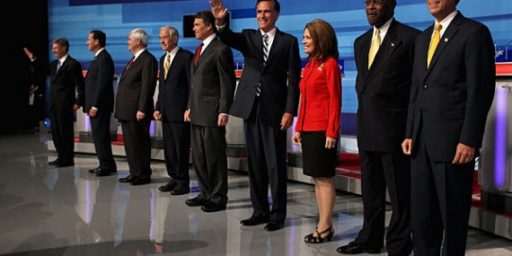A Little Senate 101
Is the filibuster essential for the Senate to function as designed?
 Said Senate Minority Leader Mitch McConnell regarding filibuster reform:
Said Senate Minority Leader Mitch McConnell regarding filibuster reform:
“But the larger point is this,” he said. “The Founders crafted the Senate to be different. They crafted it to be a deliberate, thoughtful place. And changing the rules in the way that’s been proposed would unalterably change the Senate itself” (source).
This kind of pronouncement drives me crazy because it is not only ahistorical but it ignores only essential elements of institutional design and their implications in the functioning of the US government. Such statements erroneously links the current rules of the chamber, and the filibuster in particular, to the the Founders but they wrongly conflate the filibuster with the overall design and function of the Senate.
First, Article I, Section 5 of the US Constitution states that “Each House may determine the Rules of its Proceedings.”* As such, any attempt by one of the chambers to set their own internal rules is not only not an affront to Founders and what they crafted, but it is specifically and clearly authorized by the constitution itself.
Second, as has been endlessly noted: the filibuster rule does not find it origins in the Constitution (or even the Philadelphia convention) nor in the basic theoretical design of the Senate. It developed in the course of the 19th Century practice (see the Senate history page: Filibuster and Cloture). Further, the rule itself has changed over the years, so to intimate that the Senate functions now as it did when John Adams was its presiding officer of the chamber is simply disingenuous.
Third, there is actually a difference between allowing Senators to have endless debate (which was the tradition the emerged in the early days of the Senate) and using procedural actions to avoid an actual debate. The contemporary manifestation of the filibuster is more about not debating than it is about debating or, in Senator McConnell’s words, guaranteeing that the Senate is a “deliberative, thoughtful place.” It is currently a simple procedural mechanism that allows a minority of Senators to block legislation or nominations without having to put in much effort, let alone requiring a deliberative, thoughtful process.
Fourth, the fundamental design of the Senate, as laid out in the constitution, creates the slowness that Senator McConnell wants simple by being a second chamber with symmetrical powers to the House in terms of legislating. In other words: by constitutional design all laws must pass through both chambers of the legislature and pass in identical form before that legislation moves on to the president for signature. This guarantees at least two debates on all laws.** As such, the slowing of the process accrues to legislation not because of the filibuster rule, but because of bicameralism itself.
Fifth, the fact that the composition of the Senate is institutionally different than the House also guarantees a different kind of political approach to a given bill. House members are elected from territorially delimited districts based on roughly equal numbers of residents for a two year term while Senators are elected two per state for a six year term (so we have different constituencies and different time horizons for re-election). Further, the House has 435 members and the Senate only 100. These institutional parameters create different dynamics and hence, different legislative outcomes. The filibuster itself is not the source of these differences. Even if the Senate functioned on basic majority rule principles like the House (which isn’t going to happen in any event), the basic design factors would guarantee difference outcomes.
A simple illustration of this would be the Republican Revolution Congress that took power in 1995. The House of Representative under Speaker Gingrich engaged in a flurry of activity to pass its Contract with America Legislation. However, the GOP leadership in the Senate really wasn’t all that into the Contract and didn’t even attempt to bring most of it to the floor. As such, even having a unified legislature in terms of party does not guarantee identical behavior.
And I note all of this not as just some guy on the internet, but as someone who actually studies institutional dynamics for a living.
*In the spirit of the rules of the 112th House, I have cited a specific constitutional provision for this portion of my post.
**Indeed, it guarantees likely far more than two debates. Each chamber will have multiple debates (committee and sub-committee debates, debates over amendments and the floor debate) and there is the fact that unless both chambers pass the bill in identical form that more debates will take place (either in conference on as the bill shuttles back and forth between the chambers).






Can we institute an independent body that will maintain dishonesty scores for politicians? The Senate could then make an internal rule that forces out members who get more than N points. I’m tired of there being no penalty for just Making Shit Up.
Yes, I know, I’m delirious here.